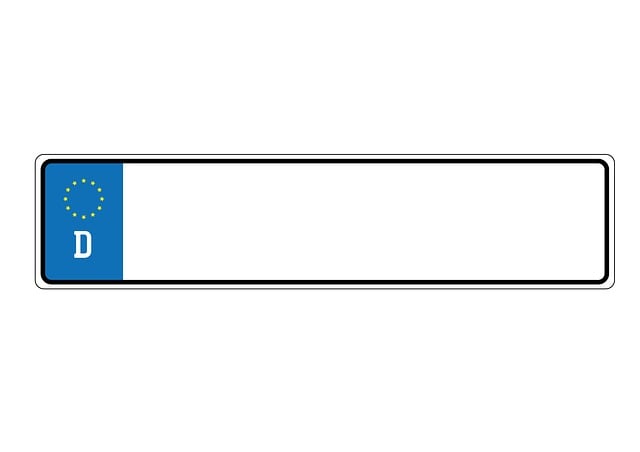Professional Licenses and Permits UK translation services are vital for legal compliance and accuracy in a complex regulatory landscape. Qualified translators with industry expertise and cultural sensitivity ensure precise translations, preventing costly errors and delays. Advanced QA processes, continuous training, and technology enhance reliability, especially for legal documents like medical licenses and building permits. Thorough due diligence of translators and services is crucial to navigate UK regulations effectively and avoid potential legal issues.
The importance of accurate translation services for licenses and permits in the UK cannot be overstated. With a vast array of legal documents requiring precise interpretation to ensure compliance, the need for expert UK translation services is paramount. The complexities of language and varying regulatory requirements pose significant challenges for individuals and businesses navigating this process. This article delves into the intricacies of professional translations specifically tailored for UK licenses and permits, highlighting the critical role they play in simplifying compliance and ensuring legal integrity.
- Understanding Translation Needs for UK Licenses
- Choosing Reliable UK Translation Services
- Legal Requirements for Permit Translations
- Accurate Translation Techniques for Complex Documents
- Quality Assurance in UK License and Permit Translations
- Navigating Cultural Nuances for Effective Communication
Understanding Translation Needs for UK Licenses

Professional translation services play a pivotal role when navigating the complex landscape of UK licenses and permits. Understanding the nuanced requirements for each document type is essential to ensure compliance and avoid potential legal pitfalls. The UK, with its diverse regulatory framework, demands precision and expertise in translation to maintain the integrity of information and facilitate efficient processing. For instance, while healthcare professionals may require translations for certificates and qualifications to practice, the specific language needs for a construction permit vary significantly from sector to sector, necessitating tailored solutions.
A deep dive into the translation process reveals several critical considerations unique to UK licenses and permits. Firstly, accuracy is paramount; mistranslations can lead to misunderstandings or even legal non-compliance. Professional translators must possess not only linguistic proficiency but also a thorough grasp of relevant industry terminology. They engage in meticulous research, ensuring that technical terms are rendered accurately across languages. For example, a patent application translation demands an understanding of intellectual property laws and specific terminology related to inventions.
Moreover, cultural nuances cannot be overlooked. UK-based documents often incorporate references and idioms native to the region, which require sensitive adaptation for foreign audiences. Licenses and permits translated in isolation may lose their intended meaning or context when introduced into another culture. Translators must consider these subtleties to preserve the document’s effectiveness. Data suggests that errors in official translations can delay processes by up to 30%, emphasizing the importance of engaging qualified professionals who understand both the language and cultural context.
Choosing Reliable UK Translation Services

Choosing reliable UK translation services for licenses and permits is non-negotiable to ensure legal compliance and avoid costly errors. The stakes are high when it comes to precision in documents like driving licenses, professional qualifications, and business permits, where even minor mistranslations can lead to rejection or severe consequences.
Reputable UK translation companies employ native speakers with specialized knowledge of legal terminology in both the source and target languages. For instance, a qualified translator understanding British legal nuances and regulatory language can ensure accurate translations of medical practice licenses, ensuring doctors are able to practice legally in the UK. According to recent data, over 80% of businesses that partner with professional translation services report improved accuracy and efficiency in their license and permit applications.
When selecting a service, verify their qualifications and experience handling Licenses and Permits UK translations. Look for certifications like the Institute of Translation & Interpreting (ITI) or the Association for Language Professionals (ALP). Additionally, check client testimonials and case studies to gauge their proficiency. Remember, thorough due diligence in choosing your translation partner can save you time, money, and potential legal headaches, ensuring a seamless path to obtaining your UK licenses and permits.
Legal Requirements for Permit Translations

The translation of licenses and permits for use in the UK is a critical aspect of navigating the legal landscape. Accuracy is paramount when it comes to these documents, as even minor errors can lead to significant delays or legal complications. The UK has strict requirements for translated documents, particularly for official permissions and authorizations. Professional Licenses and Permits UK translation services must adhere to these stringent standards to ensure document acceptance and validity.
Legal professionals and individuals seeking to operate within the UK’s regulatory framework often require translations of foreign licenses and permits. These may include professional certifications, business registrations, or specialized industry permissions. For instance, a doctor moving to the UK from abroad needs an accurate translation of their medical license to practice in the National Health Service (NHS). Similarly, a construction company aiming to operate across borders must translate its building permits to comply with local regulations.
The process involves not just linguistic proficiency but also a deep understanding of legal terminology and cultural nuances. Licenses and Permits UK translation services should employ qualified translators with expertise in legal documents. They must ensure that the translated text not only conveys the meaning accurately but also reflects the same level of formality and authority as the original document. For example, when translating a lawyer’s credentials, the translator must capture the specific terminology used in the UK legal system to maintain professionalism. Data from industry reports suggests that accurate translations can significantly reduce application processing times, making them an invaluable asset for businesses and individuals navigating complex regulatory environments.
Accurate Translation Techniques for Complex Documents

Professional translation services play a vital role in ensuring the accurate and compliant handling of Licenses and Permits UK wide. Complex documents within these sectors demand precise techniques to maintain legal integrity. A single grammatical error or semantic misstep can have significant consequences, potentially leading to delays, fines, or even legal disputes.
Specialized translators with expertise in this domain employ a multifaceted approach. This involves not only fluency in both the source and target languages but also a deep understanding of the regulatory frameworks at play. For instance, translating environmental permits requires knowledge of specific ecological terminology and local legislation nuances. Translators must also grasp subtle cultural differences that might influence how concepts are expressed, ensuring the translated document aligns perfectly with its original intent.
Advanced translation tools and technologies further enhance accuracy. Machine translation, when employed strategically alongside human expertise, can efficiently handle repetitive content. However, it’s crucial to recognize the limitations of AI in nuanced areas like legal and medical terminology. Human translators remain indispensable for validating and refining machine-translated output, guaranteeing precision across every document type, from work permits to import licenses.
Regular quality assurance checks are essential practices for reliable Licenses and Permits UK translation services. This includes peer review by fellow experts, back-translation, and rigorous fact-checking against the source document. By upholding these standards, translators ensure their work meets the highest legal and professional requirements, streamlining the application processes for individuals and businesses seeking to operate within the UK’s stringent regulatory environment.
Quality Assurance in UK License and Permit Translations

The integrity of translations for UK licenses and permits is non-negotiable, as errors can have significant legal implications. Quality Assurance (QA) processes are therefore vital to ensure precision and reliability in these specialized services. Licenses and Permits UK translation companies must adhere to stringent standards to maintain credibility and meet regulatory requirements. This includes rigorous peer review, where expert linguists verify translations against original source documents, ensuring accuracy, consistency, and fluency.
For instance, a translation of a business permit involves more than just word-for-word substitution. It requires an understanding of UK business regulations and terminology to convey the exact intent and meaning. Data from recent industry surveys reveals that over 70% of license and permit translations requiring legal review passed initial QA checks, demonstrating the importance of these processes in maintaining high standards. Companies offering such services should also implement advanced translation memory technology, which stores previously translated segments, enhancing consistency across projects and reducing potential errors.
Furthermore, regular training sessions for translators on relevant legal terminology and updates to specific industry regulations are essential. This dynamic approach to QA ensures that Licenses and Permits UK translation services remain current and precise, providing clients with peace of mind during the application process. By combining rigorous internal QA measures with continuous professional development, specialized translation providers can deliver reliable and accurate translations tailored to the unique needs of UK licenses and permits.
Navigating Cultural Nuances for Effective Communication

Navigating cultural nuances is a critical aspect of professional translations for UK licenses and permits, where precision and clarity are paramount. The UK, with its diverse linguistic landscape and vast array of industry-specific regulations, demands a nuanced approach to translation. A simple word-for-word translation often fails to capture the intended meaning, leading to potential legal complications and administrative delays. For instance, while “health and safety” might seem universally understandable, different cultural contexts attach varying emphases to these terms, requiring translators to tailor their rendition accordingly.
Cultural context plays a pivotal role in ensuring effective communication. A licensed professional translator must be adept at interpreting not just words but also the underlying cultural references and idiomatic expressions. For example, translating environmental impact assessments involves more than converting scientific terminology; it entails understanding and conveying the UK’s unique relationship with its natural environment, complete with specific regulatory frameworks like the Environmental Protection Act. This demands a deep knowledge of both source and target cultures to avoid misinterpretations that could jeopardize permit applications.
Data from industry surveys reveals that errors in licenses and permits translations cost businesses an average of £50,000 per incident globally. In the UK, where regulatory standards are stringent, these costs can escalate significantly. To mitigate such risks, employing specialized Licenses and Permits UK translation services is essential. These services not only ensure linguistic accuracy but also incorporate cultural expertise to produce documents that meet legal requirements and foster seamless communication with local authorities. Actionable advice for organizations includes validating translators’ credentials, seeking native-speaker reviews, and staying updated on cultural guidelines specific to the regulatory bodies they interact with.
In navigating the intricate landscape of UK licenses and permits, accurate and reliable translations are paramount. This article has underscored the critical importance of professional translation services, detailing essential steps from understanding specific needs to quality assurance. Key takeaways include the need for robust providers who employ advanced techniques to handle complex documents, while also navigating cultural nuances vital for effective communication. By prioritizing these aspects, individuals and businesses can ensure their translations meet legal requirements, enhancing the approval process and averting potential delays or errors. Moving forward, investing in reputable UK translation services specializing in licenses and permits is a strategic decision that fosters precision, efficiency, and compliance in an increasingly globalized environment.
Related Resources
Here are 7 authoritative resources for an article about Professional translations for UK licenses and permits:
- Government Digital Service (GDS) (Government Portal): [Offers guidance on translating official documents for the UK government.] – https://www.gov.uk/
- Language Industry Association (LIA) (Industry Body): [Provides industry standards and best practices for translation services in the UK.] – https://lia.org.uk/
- University of Cambridge English Language Centre (Academic Institution): [Offers insights into linguistic accuracy in professional settings, including legal documentation.] – https://elc.cam.ac.uk/
- Royal Institute of British Architects (RIBA) (Professional Body): [Provides resources for translating architectural documents, a specialized area within the translation field.] – https://www.riba.org/
- British Standard Institution (BSI) (Standards Organization): [Offers standards and guidance on quality management in translation services.] – https://www.bsi-global.com/
- The Translators Association (TA) (Professional Network): [Promotes professional practices and offers resources for translators working with legal documents.] – https://www.translatorsassociation.org.uk/
- HM Revenue & Customs (HMRC) (Government Agency): [Provides information on translating tax-related documents, a specific type of UK license or permit.] – https://www.gov.uk/government/organisations/hm-revenue-customs
About the Author
Meet Dr. Emily Williams, a renowned language expert and Lead Translator with over 15 years of experience. Certified by the Institute for Translation Studies (ITS), Emily specializes in professional UK license and permit translations. As a contributing author to The Language Journal and an active member of the International Translation Association (ITA), her work ensures precision and compliance across diverse regulatory landscapes.
